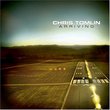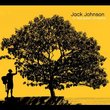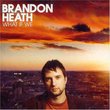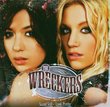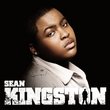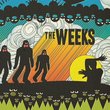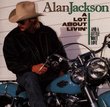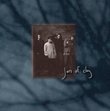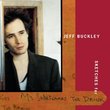| All Artists: Johnny Cash Title: Cash: Ultimate Gospel Members Wishing: 6 Total Copies: 0 Label: Sony Original Release Date: 1/1/2007 Re-Release Date: 3/6/2007 Genres: Country, Pop, Christian & Gospel Styles: Classic Country, Southern, Country & Bluegrass Number of Discs: 1 SwapaCD Credits: 1 UPC: 886970073929 |
Search - Johnny Cash :: Cash: Ultimate Gospel
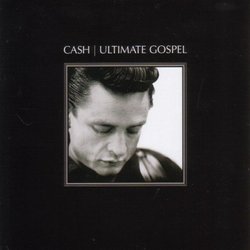 | Johnny Cash Cash: Ultimate Gospel Genres: Country, Pop, Christian & Gospel
Gospel was what Johnny Cash, Luther Perkins, and Marshall Grant originally wanted to record when they auditioned for Sam Phillips in 1954. In 1958, Sun Records' refusal to let Cash record a gospel album--despite his track ... more » |
Larger Image |
CD DetailsSynopsis
Amazon.com Gospel was what Johnny Cash, Luther Perkins, and Marshall Grant originally wanted to record when they auditioned for Sam Phillips in 1954. In 1958, Sun Records' refusal to let Cash record a gospel album--despite his track record of hits--led him to leave for Columbia. This well-chosen package delineates sacred music's ongoing role in Cash's career, beginning with two 1970 performances from his ABC variety show, one featuring longtime Cash friend Rev. Billy Graham. The 1957 Sun tunes include the searing "I Was There When It Happened" and Cash's original "Belshazzar." "He Turned the Water into Wine," "In the Sweet Bye and Bye," "That's Enough," and his 1969 gospel hit "Daddy Sang Bass," all from Columbia, are particularly passionate, as is "Far Side Banks of Jordan" (a duet with June Carter Cash) and three never-before-issued performances, 1974's "My Ship Will Sail" and "How Great Thou Art and "It Is No Secret" from 1981. Given that one can't truly understand Cash without knowing his gospel side, this is a fine introduction. --Rich Kienzle Similarly Requested CDs
|
CD ReviewsThe Johnny Cash Gospel Gustav | New Jersey | 03/05/2007 (5 out of 5 stars) "This collection of songs is exceptional, especially the unreleased tracks. The sound quality is outstanding, and the album starts off with a Johnny Cash sermon which he tells the story of Jesus. Then the familiar and unfamiliar gospel hymns come after with great effect. June Carter/The Carter Family are on alot of songs as back-up. The artwork inside the CD case is beautiful with Johnny kneeling before the painting of the last supper. So, buy this...if you are a casual Johnny Cash fan or anyone who appreciates great, soul soothing music this is a must buy. Lastly, if you buy this at Wal-Mart you get a bonus track on the album called "Sanctified" (2:23) which is a another unreleased song. Its a fun song and yet serious. Thats the only outlet I believe that has the bonus track on the album. To sum this up this is not five star Johnny, this is ten stars plus a eternity of rememberance of Johnny Cash and his will of faith." Stirring devotional music Pieter | Johannesburg | 06/11/2007 (5 out of 5 stars) "It's almost unbelievable that these tracks were recorded over a timespan of 34 years, from 1957 to 1981, since the music forms such a cohesive, seamless whole. The songs include traditionals, his own compositions and the work of others like Carl Perkins. The album opens with Here Was A Man, a spoken introduction about the life and influence of Messiah Yeshua. The next, The Preacher Said, is a type of duet with statements by evangelist Billy Graham. The following seven songs all date from the late 1950s, and my personal favorites include Belshazzar (1957), It Was Jesus with its unidentified black gospel backing vocals, Swing Low Sweet Chariot (1959) and The Great Speckle Bird from the same year. Two of the previously unreleased tracks, How Great Thou Art and It Is No Secret from 1981, are amongst the highlights. The legendary Carter Family provide backing vocals on amongst others: Peace In The Valley (1963), Angel Band (1979) and on Children Go Where I Send Thee (1979) together with the 21st Century Singers, whilst Far Side Banks Of Jordan is a duet with June Carter. Other great hymns worthy of special mention are In The Sweet By And By and Amazing Grace (both 1974) and Were You There (1962) with Maybelle Carter on autoharp and the family on backing vocals. The full spectrum of the spiritual experience is covered by these beautiful, timeless songs: sombre reflection, joy, melancholy, awe, comfort, devotion and gripping story-telling. This is my first album of the music of Johnny Cash and I'm hooked! His beautiful baritone is impressive on its own, but even more amazing when framed by the devotional backing vocals. The CD booklet contains one sepia and four black and white pics, information like recording dates and musicians for every song, plus a short bio written by Sylvie Simmons. " These songs with spiritual strength & comfort had special me Joseph Ross | Roseburg, OR USA | 03/07/2007 (5 out of 5 stars) "Playing Time - 67:14 -- Johnny Cash grew up surrounded by music. The field hands sang rhythmic work songs to make the time go quicker. There was the family's piano. On Saturday nights, they'd tune their radio dial to the Grand Ole Opry. His mother was a devout member of the Pentecostal Church of God where services incorporated music and fire-and-brimstone preaching. This CD, "Ultimate Gospel," brings together a compilation of sacred material that can provide insight about the singer and his career on a decade-by-decade basis primarily during the 50s, 60s and 70s. By 1950, Johnny had graduated from high school and one of his first bands was "Landsberg Barbarians," when he served in the Air Force in Germany. By 1954, Cash was back stateside in Memphis rehearsing gospel songs to play at parties and church socials. His brother Roy introduced John to two mechanics at the Chevy dealership where they worked. Both Luther Monroe Perkins and Marshall Grant had been with The Dixie Rhythm Ramblers and The Tennessee Three. The guitarist and bassist are prominently heard in the material dating from the 50s and 60s. At Sun Records, Sam Phillips didn't forbid them to record gospel, but he did encourage the band to focus on country & western. Tracks 3 and 4 ("I Was There When It Happened" and "Belshazzar") document some of his earliest gospel recorded in Memphis. Both songs were produced by Jack Clement, and "I Was There When It Happened" is taken from one of Cash's first records, "Johnny Cash With His Hot and Blue Guitar" put out by Sun Records in 1957. "That's Enough" is a strong and moving selection from his 1958 record.
In 1958, Cash's success led to his signing with Columbia Records. With a simple handshake, producer Don Law entered the picture. Tracks 5-10 and 14-16 on "Ultimate Gospel" were originally produced by Law (and Frank Jones on the latter three) and released on six different albums (on Columbia) between 1958-64. At the time, there were many hits coming out of studios like Bradley's Barn in Nashville. For example, "That's Enough" was taken from the 1958 LP (Johnny's first for Columbia) called "The Fabulous Johnny Cash." That record eventually charted at #19. The May, 1959 record "Hymns By Johnny Cash" was his second Columbia LP. We hear three songs on this collection (It Was Jesus, The Old Account, Swing Low Sweet Chariot). Johnny once said it was "the album he came to Columbia to record," due to Sam Phillips' reluctance to allow him to record much gospel material at Sun. By 1960, we hear a regular member of Johnny's band (drummer W.S. `Fluke' Holland) appear in the musical mix. You may recall that The Carter Family joined Johnny's touring show in the 60s, and their backing vocals are heard in selections like "He Turned The Water Into Wine," "Troublesome Waters," and the others throughout the 70s. I've always loved their arrangement and classic presentation of "There'll Be Peace In the Valley For Me" and "Were You There When They Crucified My Lord?" While Cash had many popular country and even progressive folk hits, he'd also regularly revisit his gospel roots. Two offerings ("Daddy Sang Bass" and He Turned The Water Into Wine") are sampled from Cash's 1968 concept record, "The Holy Land," with its inspirational songs and narrative based on a trip to Israel with June Carter. Carl Perkins' "Daddy Sang Bass" was a #1 hit and the song's lyrics mention "little brother" Jack Cash who died tragically in an electric saw accident. In 1969, Luther Perkins also passed away (in a fire), and Carl Perkins replaced him in the band. Johnny's duets with June Carter Cash are legendary, and we are treated to a 1976 rendition of "Far Side Banks of Jordan" here. Johnny Cash has had many secular hits over the years. The 1980 Country Music Hall of Fame inductee also recorded a considerable amount of favorite gospel numbers during his days. Cash himself experienced poverty and later battled drug addiction, and he realized the need for a relationship with God. These songs had special meaning for him. I'm surprised they didn't include the song, "I Call Him," which I always considered one of his most personally introspective pleas. Spanning over an hour, this set scratches the surface of his sacred music legacy. For those who love classic country gospel music, this album evokes a strong feeling of being close to God. The spiritual strength and comfort of these magnificent songs from yesteryear give us dear and cherished memories. They are tenderly sung with joy by Johnny Cash. Three of the cuts are previously unreleased. They include My Ship Will Sail (1974), How Great Thou Art (1981), and It Is No Secret (What God Can Do) (1981). We should be thankful for this wonderful compilation of songs of the spirit because making a joyous noise unto the Lord is an everlasting thing. It's nice to know that such songs, heartwarming in their simplicity, remain popular in the hearts of good people everywhere. Cash recorded many other sacred songs, and I hope that there will be a subsequent volume of such material. Perhaps they'll reissue "We'll Meet Again," the lyrics of which were printed in Cash's funeral program. (Joe Ross, Roseburg, OR.) " |

 Track Listings (24) - Disc #1
Track Listings (24) - Disc #1